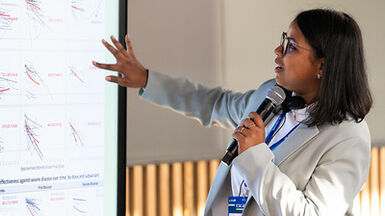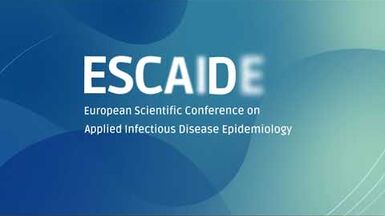Eurosurveillance scientific seminar 2019: Point-of-care testing (POCT) and its impact on surveillance of communicable diseases and public health

Diagnostic devices for testing close to the patient, frequently by healthcare workers who may or may not have specific laboratory training or for self-testing, are becoming increasingly available. Point-of-care testing (POCT) makes testing easier and produces more rapid results, which enables timely clinical decisions and treatment as well as the implementation of infection prevention and control measures. Such advantages have led to increased interest in POCT among clinicians, as well as public health experts and decision makers. However, the incorrect use of tests can affect their accuracy and quality, and their sensitivity and specificity can vary. As rapid diagnostics’ limitations can have important consequences for individual and public health, it is crucial to ensure appropriate use. Aside from standards and accreditation of tests, selftested patients need to be linked to care and policies should be in place to address these aspects. Capturing results from POCT and self-testing devices systematically and comprehensively is a challenge for epidemiological surveillance. For reference and public health laboratories, possible limited availability of referred samples and/or isolates from POCT could impact on detection of transmission events, identification of emerging new strains, infection source attribution, monitoring antimicrobial resistance patterns, etc.
Moderator
Professor Nick Phin
Professor Nick Phin, editorial advisor of Eurosurveillance, has been Acting Director of the Centre for Infectious Disease Surveillance and Control (CIDSC), Public Health England, Colindale, London, United Kingdom for nearly 3 years. CIDSC covers all aspects of infectious disease response and provides advice and information on infectious diseases locally, nationally and internationally. He is also the International Health Regulations National Focal Point and European Centre for Disease Prevention and Control Focal Point for a number of areas. Professor Phin was acting Head of Department for Respiratory Diseases at CIDSC before his current position and still remains involved and keenly interested in influenza (avian, seasonal and pandemic) and Legionnaires’ disease.
Speakers
Dr Susan M. Poutanen
Dr Susan M. Poutanen gave a presentation entitled ‘Infectious disease POCT: ready or not, here it comes’. Dr Poutanen is a Medical Microbiologist and Infectious Diseases Physician at University Health Network and Mount Sinai Hospital in Toronto, Canada and an associate professor in the Department of Laboratory Medicine and Pathobiology and the Department of Medicine at the University of Toronto. Susan currently serves as the Microbiology Section Head of the Association of Medical Microbiology and Infectious Diseases Canada. She is leading the Association’s creation of a guidance document regarding quality implementation of point-of-care tests in microbiology. Susan’s broad research interests include: the epidemiology and detection of antimicrobial resistance, the use of faecal microbiota transplantation to manipulate dysbiosis and the optimisation of microbiology laboratory practices using rapid diagnostics, automation, artificial intelligence and point-of-care tests.
Professor Marc Struelens
Professor Marc Struelens talked about ‘Infectious disease POCT: how to translate into public health benefits’. Professor Struelens is former President of the European Society of Clinical Microbiology and Infectious Diseases, and Professor of Medical Microbiology at the Faculty of Medicine of the Université Libre de Bruxelles in Belgium. Marc has authored over 280 peer-reviewed articles and 20 book chapters across many disciplines, including molecular epidemiology, control of nosocomial infections and antimicrobial resistance. He has served as editor of several international scientific journals, has been a member of several national and international advisory boards and European Union (EU)- supported research and public health networks, and has served as consultant to the World Health Organization and EU bodies.



